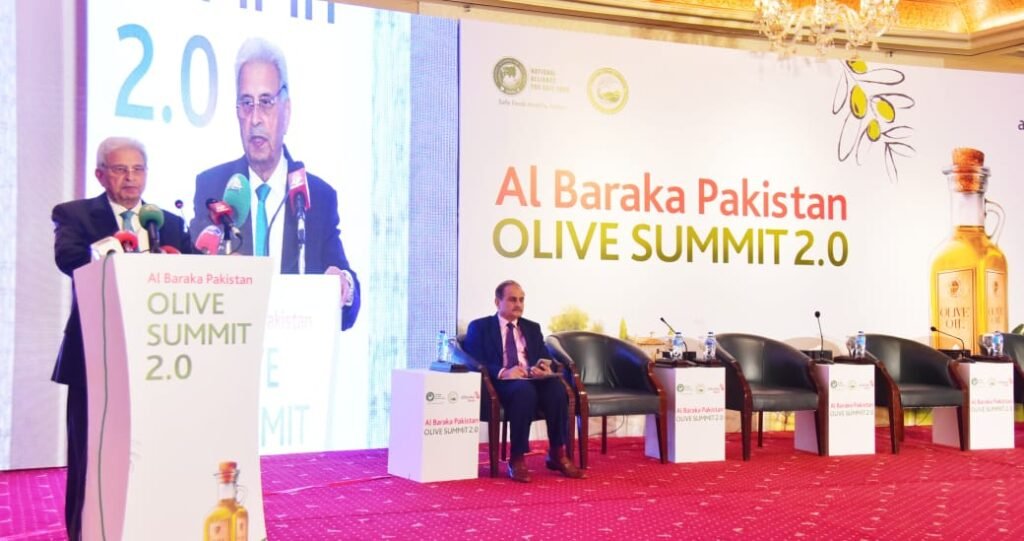
Al Baraka Pakistan Olive Summit 2025. An initiative to strengthen Pakistan’s olive sector through innovation, export-readiness, and sustainable practices
Islamabad : Federal Minister for National Food Security and Research Rana Tanveer Hussain addressed the Pakistan Olive Summit 2.0, emphasizing that the olive sector has the potential to become a new milestone in Pakistan’s economic growth. He stated that the northern and southern regions of Pakistan possess vast potential for olive cultivation, and with a coordinated and strategic approach, Pakistan can join the ranks of the leading olive-producing countries in the world.
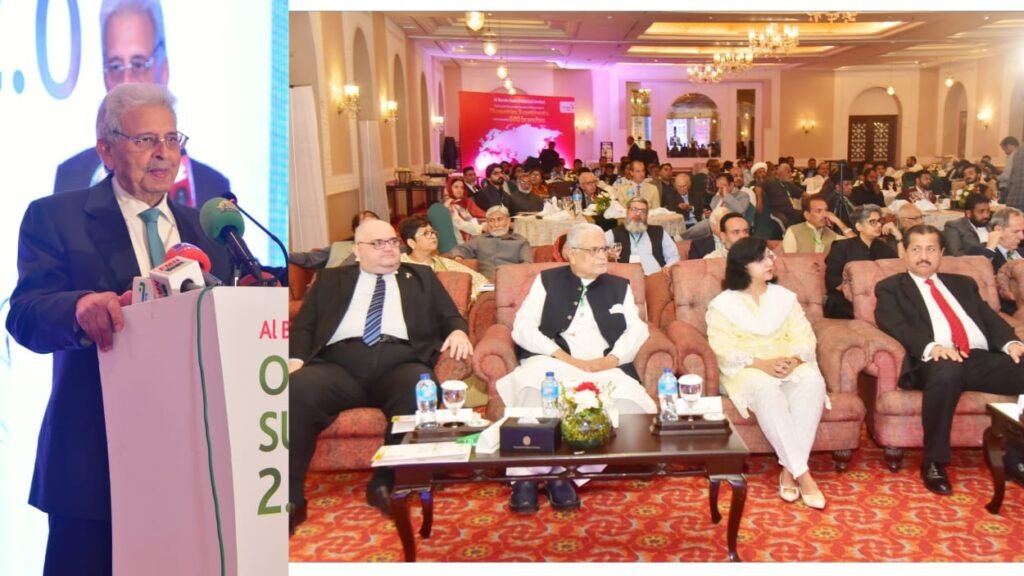
Rana Tanveer Hussain said that achieving self-sufficiency in olive production is no longer a dream but an achievable reality. He added that olive oil can become a strong export brand for Pakistan — symbolizing “Made in Pakistan” as a mark of trust, quality, and health in global markets.
He highlighted that olive cultivation will not only strengthen rural economies but also increase farmers’ income and ensure the efficient use of agricultural land. Since olive trees are drought-tolerant, their cultivation will also contribute to water conservation and environmental protection.
The Federal Minister said that the Ministry is promoting the use of modern technology across all stages of the olive value chain — including cultivation, oil extraction, processing, packaging, and marketing. He added that Public-Private Partnership (PPP) models are being adopted to accelerate investment in this promising sector.
Rana Tanveer Hussain noted that the private sector has vast opportunities to invest in the olive industry. He announced that the government is establishing Olive Clusters across various regions to enhance collaboration among farmers, agricultural experts, and investors.
He further stated that by promoting the olive sector, Pakistan could significantly reduce its dependence on edible oil imports, saving billions of rupees in foreign exchange each year. Currently, Pakistan spends billions of dollars annually on edible oil imports, which can be substantially reduced by increasing domestic olive production.
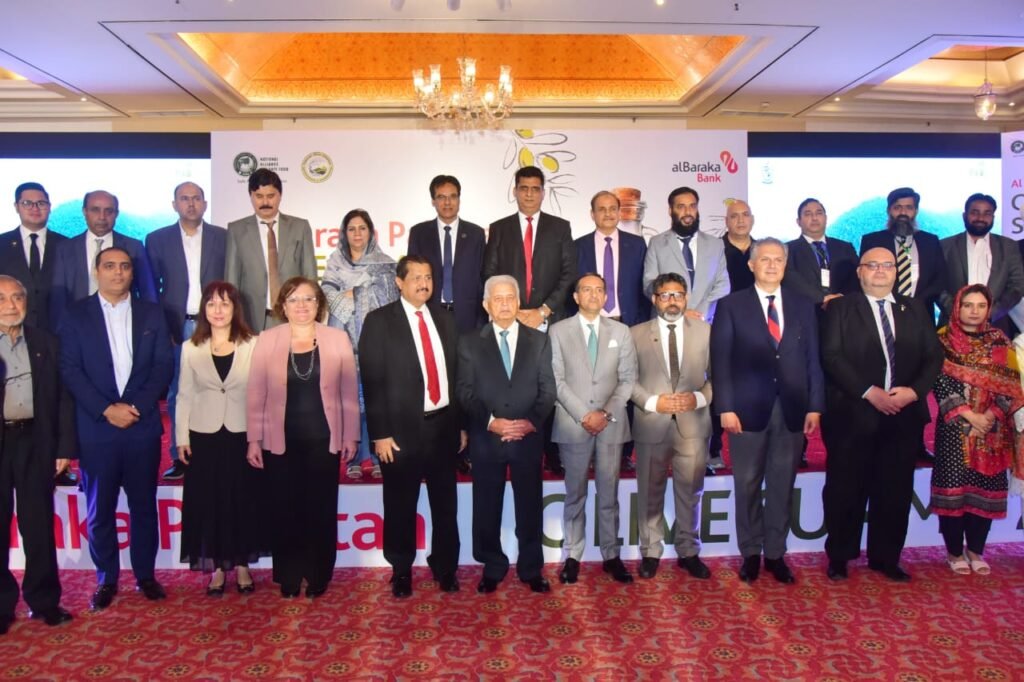
The Minister described the olive industry as a model of climate-smart agriculture, contributing to soil preservation, temperature regulation, and the reduction of carbon footprints.
Rana Tanveer Hussain emphasized that young farmers can play a vital role in advancing the olive sector, as they are capable of adopting modern scientific methods and engaging with new markets.
He added that the Ministry of National Food Security and Research is developing a National Olive Plan 2030, a policy framework focusing on research, investment, training, and international cooperation to promote sustainable olive cultivation in Pakistan.
Concluding his address, the Federal Minister said “Olive is not merely a crop — it is a symbol of prosperity, sustainability, and self-reliance for Pakistan. We will make olive the identity of Pakistan and introduce it as a strong national brand in the global market.”
Sohail Majeed is a Special Correspondent at The Diplomatic Insight. He has twelve plus years of experience in journalism & reporting. He covers International Affairs, Diplomacy, UN, Sports, Climate Change, Economy, Technology, and Health.


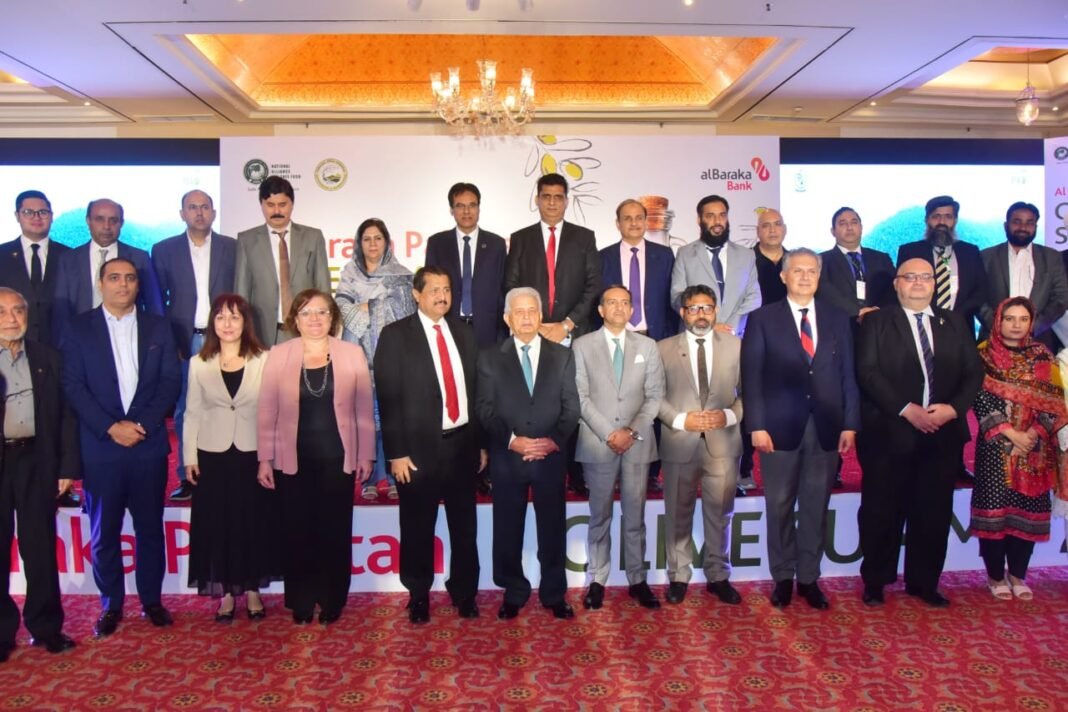

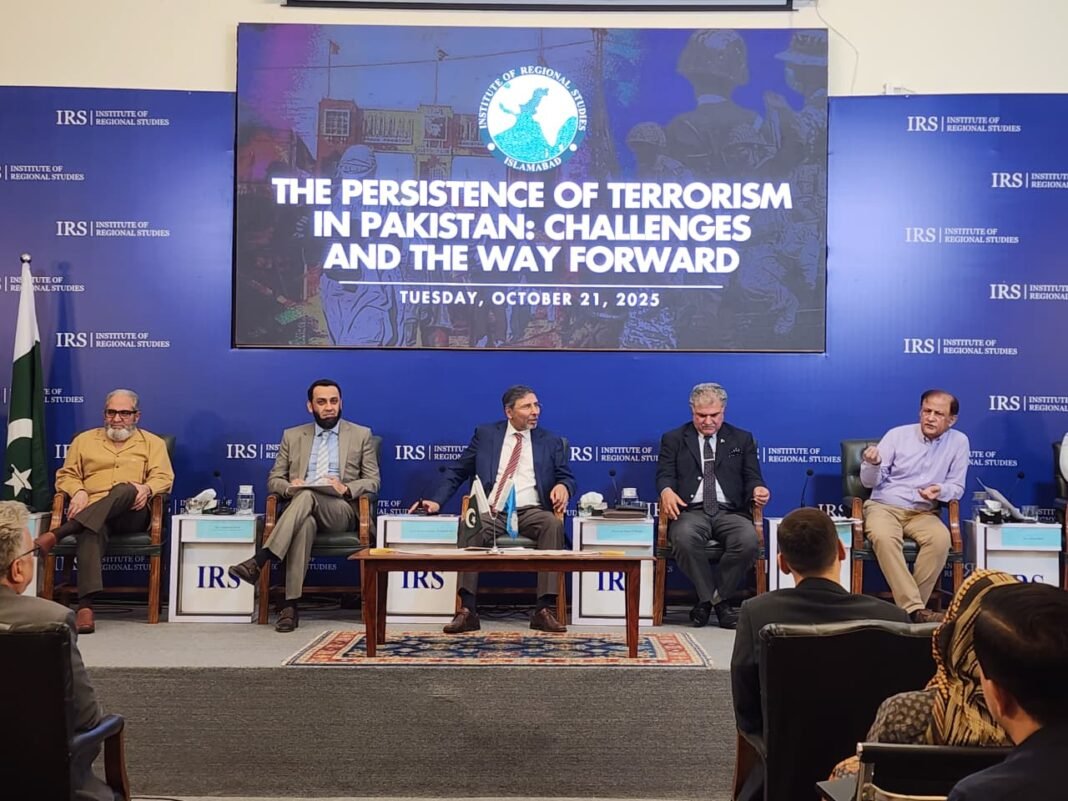
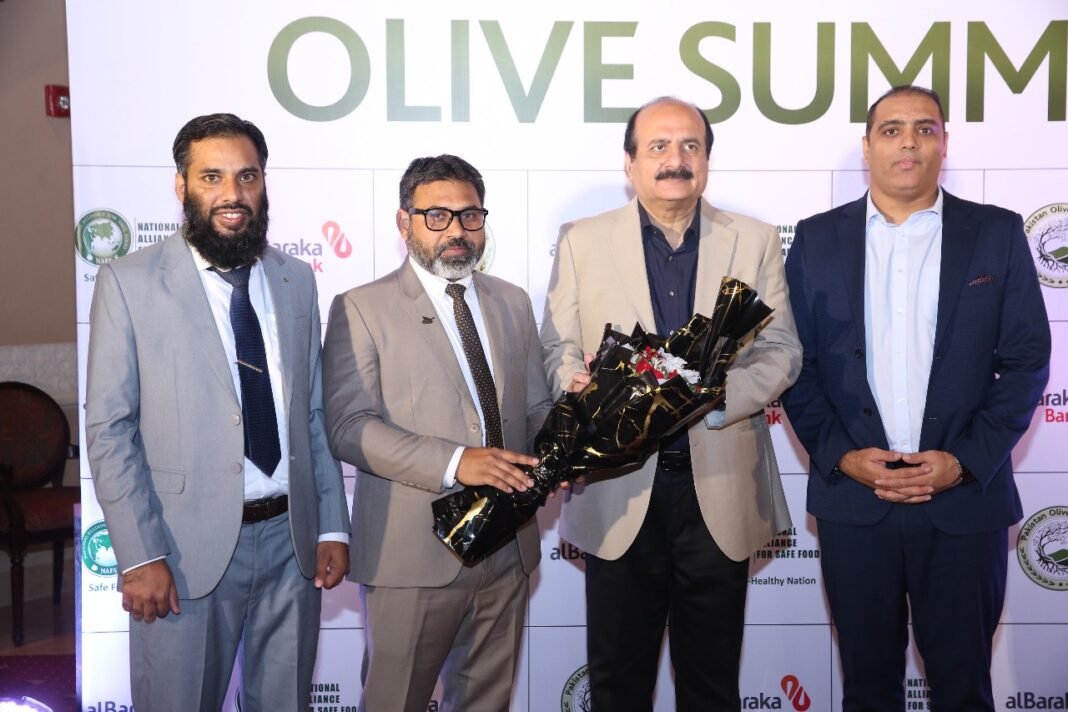
![logo-1[1]](https://globalnewspakistan.com/wp-content/uploads/2025/01/logo-11-e1737618310315-300x187.png)